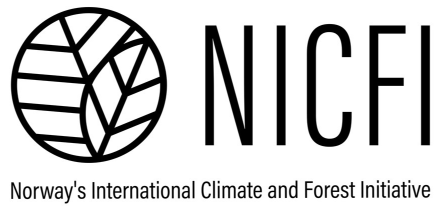CIFOR-ICRAF, together with the University of Indonesia’s Research Center for Climate Change (RCCC UI) and partners are implementing a Global Comparative Study on Reducing Emissions from Deforestation and Forest Degradation (GCS REDD+). Through this project, we foster the co-creation of knowledge and learning exchange at all levels, ensuring policymakers and practitioners have access to – and use – the information, analyses, and tools needed to design and implement effective, efficient and equitable REDD+ policies and actions. This lecture series is one of the key components to disseminate knowledge and exchanging lesson learned of the GCS REDD+ Phase 4 project’s ‘Work Package 1: achieving transparency and accountability’ and aims to tailor research to country-level needs, policies and targets pertaining to forest-based climate mitigation.
This lecture series will focus on sharing lessons on REDD+ and deforestation and forest degradation archetypes from GCS REDD+ countries, including Indonesia.
Since REDD+ emerged in 2007, it was seen as a potential instrument to deliver quadruple wins: delivering climate benefits plus co-benefits for poverty reduction, better forest governance, and biodiversity conservation (Brown et al. 2008). Although national REDD+ initiatives have not ended deforestation and forest degradation, important intermediate milestones have been reached, including a better understanding of deforestation drivers and improved monitoring capacities (Nesha et al. 2021).
The Work Package 1 of GCS REDD+ identify a set of tropical deforestation and forest degradation archetypes, which will be tested and applied in the priority countries including Indonesia. Archetypes are stylized contexts that describe the main drivers, patterns and processes that shape social-ecological systems and co-determine socioeconomic and environmental outcomes.
Indonesia’s latest major achievement is its lowest annual deforestation rate in decades at only 0.1 million hectares in the 2019-2020 period, or 75% lower than the 2018-2019 deforestation (462.46 thousand ha), including a reduced occurrence of forest fires. The policy mix has been a major contributor to the Government of Indonesia’s efforts to tackle deforestation. Zooming in on different contexts that bring favourable circumstances for decreasing deforestation may help us better understand what works best where and why, and how we can keep the current positive trend going into the future.
Objectives
The main objective of this visiting lecture is to discuss progress made by CIFOR-ICRAF, RCCC-UI, and partners in the deforestation diagnostics approach.
In this visiting lecture, Arild Angelsen, Professor of Economics at the Norwegian University of Life Science (NMBU) and CIFOR-ICRAF’s Senior Associate, will present general lecture on REDD+ and will lay out details pertaining to methods used for defining and identifying different deforestation contexts in Indonesia (deforestation archetypes). Studies involve new analyses of satellite data, as well as the identification of different deforestation patterns and drivers in Indonesia. The goal of the lecture is to present the research and receive feedback from academics in Indonesia. This will allow us to make the research more relevant for students and researchers in Indonesia.
The lecture is co-organised by the Department of Anthropology, Faculty of Social and Political Science Universitas Indonesia, Institute for Social and Political Research and Development (LPPSP) FISIP UI, the Center for International Forestry Research-World Agroforestry Center (CIFOR-ICRAF), and the Research Center for Climate Change (RCCC UI) Universitas Indonesia.
Agenda
Contact: Bimo Dwisatrio (b.dwisatrio@cgiar.org or b.dwisatrio@cifor-icraf.org)



















